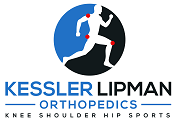Occupational Therapy: An Overview
Introduction
Occupational therapists view life holistically and focus on the physical, social, emotional, and psychological affects of illness and injury. They are well-educated professionals and enter the field with a bachelors, masters, or doctoral degree. Following their education, they must successfully complete a series of internships and pass a national examination. They must also receive continuing education throughout their careers. Occupational therapists can gain specialty credentials in an area of practice, such as a Certified Hand Therapist, after successfully completing practice, education, and examination requirements.
Occupational therapists realize everyone is different and will focus on what is important to you. From teaching you to bathe with one hand to customizing your bathroom with durable medical equipment, occupational therapists are creative problem solvers. They are dedicated to helping you and your loved ones learn how to function as independently and safely in the environment that is important to you.
Following injury or illness, an occupational therapist can help you identify tasks that you need assistance with and improve skills that have been affected by your illness or injury. An initial evaluation will determine your baseline skill level, strengths, limitations, and degree of independent functioning. Standardized tests may be used to evaluate muscle movements, hand coordination, strength, memory skills, and visual perception. You will be asked to demonstrate or simulate practical activities, such as dressing, feeding, bathing, and toileting. This information is necessary to make recommendations to improve your skill level, safety, and independence. You should tell your evaluator your goals, expectations, and priorities. Together, you will formulate a treatment plan with specific short term and long term goals.
You may be able to improve your functioning by performing exercises and activities. If your problems are permanent or severe, you may be able to learn compensation techniques, such as using assistive devices. You may need to re-learn how to perform certain tasks or learn how to do things in a different way, such as using one-handed techniques for dressing or grooming.
Occupational therapists perform home safety evaluations and home modification evaluations. They can make recommendations for adaptations to your home, such as widening doorways to allow wheelchair entrance, and durable medical equipment, such as toilet risers and grab bars in a shower.
Occupational therapists can assist with your return to work or school. As part of your therapy, you may perform work simulation activities to increase your skills. Your therapist can examine your work or school environment and make ergonomic or accessibility suggestions to improve your function and prevent future injuries.

Copyright © - iHealthSpot Interactive - www.iHealthSpot.com
This information is intended for educational and informational purposes only. It should not be used in place of an individual consultation or examination or replace the advice of your health care professional and should not be relied upon to determine diagnosis or course of treatment.
The iHealthSpot patient education library was written collaboratively by the iHealthSpot editorial team which includes Senior Medical Authors Dr. Mary Car-Blanchard, OTD/OTR/L and Valerie K. Clark, and the following editorial advisors: Steve Meadows, MD, Ernie F. Soto, DDS, Ronald J. Glatzer, MD, Jonathan Rosenberg, MD, Christopher M. Nolte, MD, David Applebaum, MD, Jonathan M. Tarrash, MD, and Paula Soto, RN/BSN. This content complies with the HONcode standard for trustworthy health information. The library commenced development on September 1, 2005 with the latest update/addition on February 16, 2022. For information on iHealthSpot’s other services including medical website design, visit www.iHealthSpot.com.


